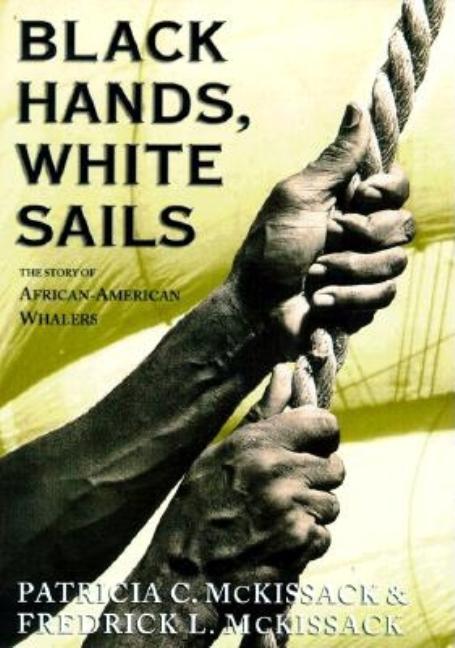Book Description
for Black Hands, White Sails by Patricia C. McKissack and Fredrick McKissack
From Cooperative Children's Book Center (CCBC)
Previously little known history unfolds as the authors relate the workings of the 19 th century whaling industry and its dependence upon the skill and knowledge of its workers, including African American whalers. They document the connection of the East Coast whalers to the abolitionist movement, the Underground Railroad, and the Civil War. A quote from Herman Melville’s Moby Dick opens the account which contains black-and-white reproductions of archival documents, selected artwork, and historic photographs. This important account includes information about the whaling towns in New England, along with a description of what it was like to sail on a whaling ship and how it must have felt to be a first-time whaler. Scrimshaw is briefly discussed, as are sea shanties. The appendix includes information about various types of whales, important dates and an index. (Ages 12-16)
CCBC Choices 2000. © Cooperative Children's Book Center, Univ. of Wisconsin - Madison, 2000. Used with permission.


